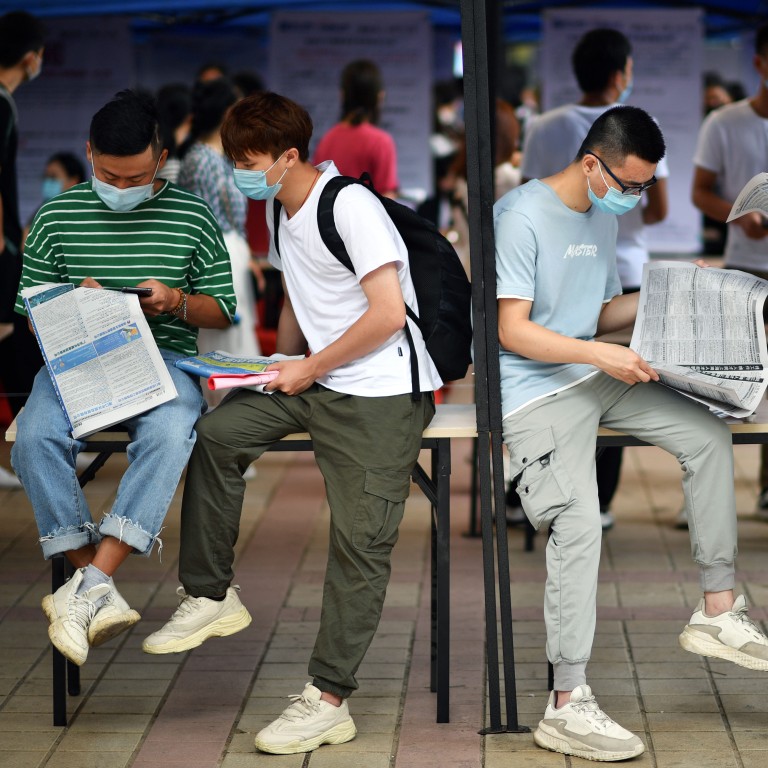
China’s youth jobless rate remains stubbornly high, despite slight improvement in August
- China’s jobless rate for 16-24 year olds was 18.7 per cent in August, down slightly from a record high of 19.9 per cent in July, official data shows
- Some 10.76 million Chinese students will graduate this year amid slowing economic growth, putting even more pressure on the country’s job market
But with an estimated 2.12 million sitting the civil service examination in 2021, competition was extremely tight, and Zhe missed out. He has not had much luck since.
“I felt anxious this year when I saw some job announcements requiring only 2022 and 2023 graduates,” said the 23 year old from Hubei province.
“I submitted more than 20 resumes, all of which went unanswered.”
It is not going to become any easier, either. Zhe will soon be competing for jobs with a record 10.76 million Chinese students graduating later this year.
Given the scale of the challenge, whether it will make a difference remains to be seen.
Nationally, the number of recruitment ads fell by 19 per cent in the second quarter from a year earlier, while the number of job applications rose by 135 per cent, according to a July report by the China Institute for Employment Research at the Renmin University of China.
Liu Shenglong, an associate professor at Tsinghua University’s School of Public Policy and Management, said the issue of youth unemployment is unlikely to improve.
In addition to recent college graduates, students returning from overseas and workers who lost their jobs due to corporate closures are all vying for jobs, said Liu.
“If all these factors add up, I think the situation will only worsen if the economy does not recover quickly,” he said.
Beijing’s zero-Covid policy, a slump in the property sector and slowing global demand all stand in the way of a full recovery.
We’re in a pessimistic and helpless mood
Kang Jiang, a 24 year old who graduated from an elite Shanghai university with a medical degree this year, started job hunting last autumn when there were still enough jobs available. But he only secured work with a newly established medical device company in April.
Economic growth in Shanghai fell by 13.7 per cent year over year in the second quarter. Kang said job vacancies are now scarce.
“It’s extremely hard to get a job in Shanghai right now and I’m already grateful for this company taking me on,” he said.
“We’re in a pessimistic and helpless mood.”


